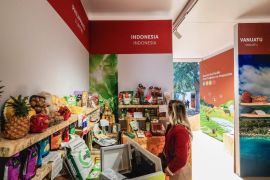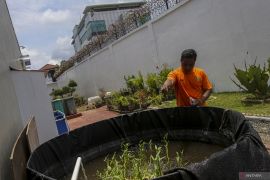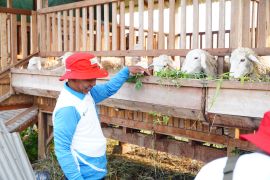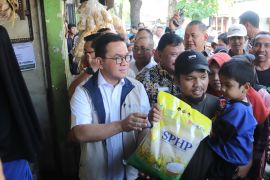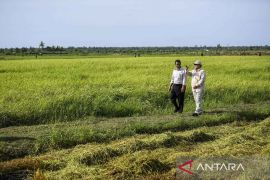"Choosing local fruit demonstrates our commitment to utilizing our food resources and potential," Arief said in a press release on Sunday.
He made these comments following concerns about Shine Muscat grapes after Thai authorities detected harmful pesticide residues on the imported fruit in their market.
Indonesia immediately responded by conducting rapid pesticide residue tests with the Regional Food Safety Competent Authority (OKKPD).
According to the test results, Bapanas confirmed that Shine Muscat grapes in the Indonesian market are safe to consume.
While people are free to choose the foods they like, Arief encourages them to prefer local products to help strengthen food security.
"For strong food security, the foundation is food independence. This means we must prioritize domestic production," he stated.
He noted that Indonesia has a wide variety of fruits, such as mangosteen, mango, banana, and snake fruit, that can meet local demand.
"We encourage people to prioritize local fruits, which are not only fresh but also support the well-being of Indonesian farmers," he added.
Arief stated that consuming local fruits aligns with efforts to diversify food consumption based on local resources, as outlined in Presidential Regulation Number 81 of 2024.
He highlighted three benefits of choosing local fruits: supporting a healthy lifestyle, boosting regional and national economies, and enhancing local farmers' livelihoods.
Data from the Expected Food Pattern report in 2023 shows that Indonesia’s fruit consumption rose from 76.7 grams per capita per day in 2021 to 88.7 grams per capita per day in 2023, with a 3-gram increase per capita between 2022 and 2023.
However, despite this rising trend, average fruit consumption in Indonesia remains below both national targets and the World Health Organization’s (WHO) recommendations.
In 2023, the average Indonesian consumed only 34.4 kilograms of fruit per capita annually, while WHO recommends a minimum of 65 kilograms per capita per year.
Bapanas' Food Consumption Diversification Director, Rinna Syawal, explained that local fruits have several advantages over imported fruits, including greater freshness and better nutritional content.
"Local fruit is fresher and healthier because it is harvested at peak ripeness and doesn’t travel long distances to reach consumers. This not only ensures a fresher taste but also preserves the fruit’s nutritional quality," Rinna said.
The agency has been promoting local fruit consumption through various activities throughout the year.
"We have distributed approximately 9,050 bottles of vegetable and fruit juice, along with 15,350 bananas, for free at various events to increase public awareness of the benefits of consuming local fruit," she noted.
In addition to direct community outreach, Bapanas is also running the "B2SA Goes to School" (BGtS) program, which promotes diverse, nutritious, balanced, and safe food using local ingredients.
"This program is implemented in 380 schools across 38 provinces, aiming to reach 80,000 students," Rinna concluded.
Related news: Lab results to determine fate of Muscat grape imports
Related news: The silent rescue of Meratus' rare fruits
Translator: Muhammad Harianto, Yashinta Difa
Editor: Anton Santoso
Copyright © ANTARA 2024


